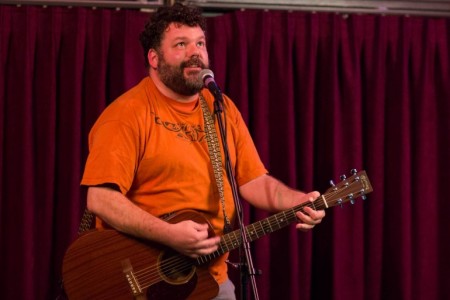January Meeting Recap
Hey songwriters,
At the first Pittsburgh Songwriters Circle meeting of 2016, just about everyone started the year with a “key change.”
Call it an easy songwriting trick, a musical modulation designed to hold listener attention or the awe-inspiring moment when a song explodes into unforgettable dimensions. Several good examples were played by members.
In an NME magazine blog post titled “10 Spectacular Key Changes that Aren’t Totally Cheesy” (www.nme.com/blogs/nme-blogs/
“Modulation works by violating our expectations,” she writes. “An unexpected change in melody or harmony fires the most primitive areas in our brain, specifically the amygdala, and elicits an emotional reaction.”
In the 1700s, French composer and music theorist Charles-Henri de Blainville described it like this: “Modulation is the essential part of the art. Without it there is little music, for a piece derives its true beauty not from the large number of fixed modes which it embraces but rather from the subtle fabric of its modulation.”
The NME site posts familiar songs that use key changes, from The Beach Boys’ “In My Room” (1963) to Arcade Fire’s “Reflektor” (2013). For a great example of why, when and how to use key changes, click on The Who’s “My Generation” (1965). The band makes up for a paltry 55 seconds of lyrics in a 3:23 song by ramping up the intensity with three escalating key changes and bombastic Who dynamics. Hear the modulations at 1:20, 1:50 and 2:26.
No promises on how key changes will work on your song, but “My Generation” was listed as the 11th greatest song on Rolling Stone magazine’s 500 Greatest Songs of All Time. It is among the Rock and Roll Hall of Fame’s 500 Songs that Shaped Rock and Roll and was inducted into the Grammy Hall of Fame for “historical, artistic and significant” value.
At the next meeting, 7 p.m. Tue., Feb. 2, we explore “the bridge” (https://en.wikipedia.org/
See you soon,
John




